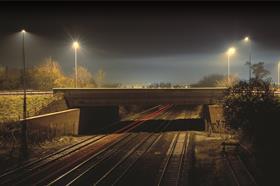Completed high-speed line to north of England would add £15bn per year to the economy a KPMG analysis finds

The high-speed rail line to the north of England would add £15bn to the economy each year once it is completed, according to new analysis on the project by consultant KPMG.
The analysis, commissioned by HS2 Ltd, was based on the scheme running from London to Manchester and Leeds and concluded the line would result in a contribution of £15bn a year to the economy from 2037 onwards, five years after it is complete.
The report comes after a summer when the £43bn project has come under increasing attack for its cost and lack of a rigorous business case.
The KPMG analysis found the line will have a most direct impact on service sectors of the economy, which accounted for 95% of the productivity gains.
The report also found that the uplift in GDP would be felt across a wide geographic area.
It found, for example, that HS2 would provide up to £1.3bn of benefit to Greater Manchester; up to £3.1bn of uplift to the West Midlands; up to £2.2bn to Derby and Nottingham and £2.8bn to Greater London.
A HS2 Ltd spokesman said the report was a “hugely significant contribution to the progress of HS2”.
“Increased rail capacity, with faster and more reliable connectivity, will contribute to the economy right across the UK. The North and Midlands are set to gain at least double the benefit for the south.”
Richard Threlfall, UK head of infrastructure, building and construction at KPMG, said construction would also likely benefit from the boost from the completed line, though that did not form part of the KPMG analysis.
He said: “If we feel we are starting to come out of recession at the moment then that will wash through into the construction industry faster than many other industries because it’s a sentiment driven industry.
“This shows an increase in the GDP of some great magnitude and that in turn will be a benefit to the construction industry as it will be to any other.”
“There is now clear evidence of the economic boost HS2 represents in terms of jobs, productivity and growth. HS2 is the right project at the right time.”
WSP UK managing director of consultancy Mark Naysmith said: “The HS2 doomsayers have been heavy with their criticisms of the cost but have conveniently forgotten to look at the return on that investment. HS2 is not simply a rail project, the development opportunities around new stations alone will be a major catalyst for regional growth.
“Furthermore, no one has yet to come up with a realistic alternative that can serve the same purpose. Ploughing the money into existing lines just isn’t justifiable and doing nothing is clearly not an option if we want to remain competitive and progressive.”
Martin Tett, chair of the 51m alliance of local authorities opposed to HS2, said it was a “report commissioned by HS2 Ltd, to justify HS2 Ltd”.
He said the report rested on assumptions, such as assuming connectivity was the only constraint on where businesses located themselves, which he said was false.
Tett added: “This has the feeling of a desperate attempt to shore up a failing project that has been independently reviewed by experts groups such as the Public Accounts Committee, the National Audit Office and the Institute for Economic Affairs. All have found HS2 a seriously flawed project and a poor use of public money.”



























2 Readers' comments